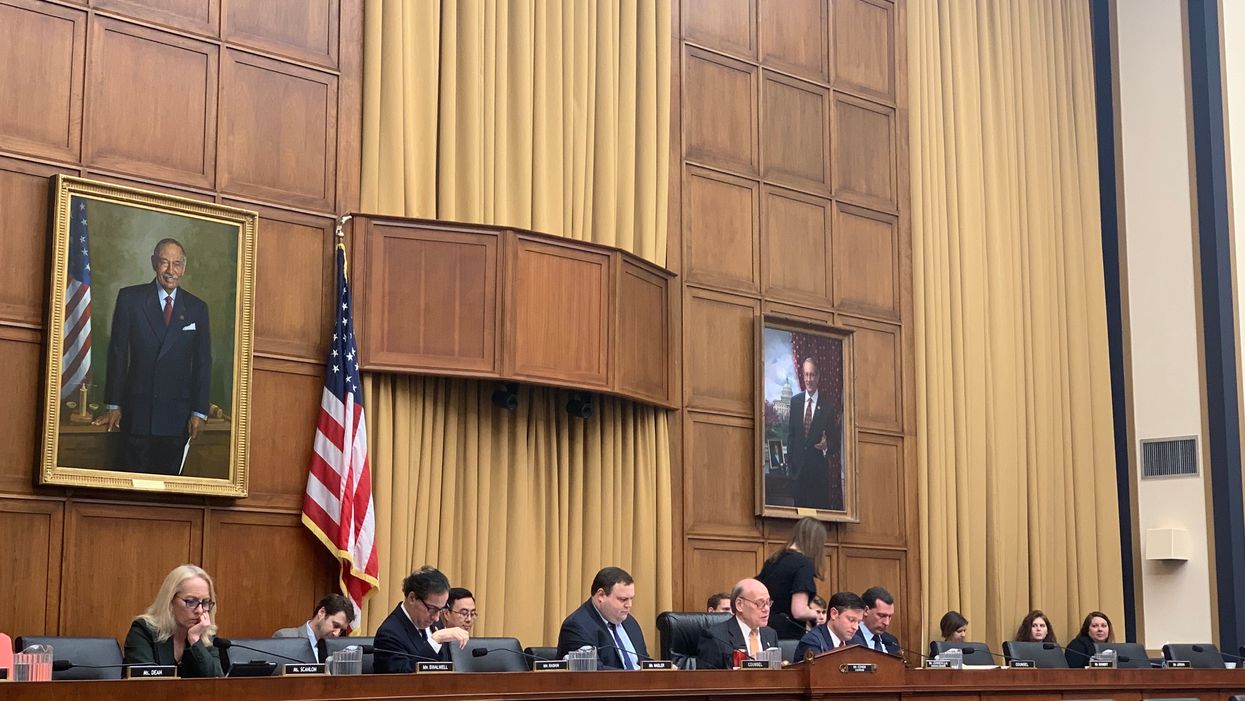It's been a decade since the Supreme Court's Citizens United ruling, paving the way for an ocean of unregulated and secretive campaign spending. Proponents of tighter restrictions had their first chance on Thursday to tell the House why amending the Constitution is the best way to reverse the multibillion-dollar trend — but the subcommittee hearing looks to be all they get for a while.
The so-called Democracy For All amendment has been introduced in the House and Senate in all six Congresses since the Supreme Court's landmark decision. Each time, Democrats have been joined by one Republican at most in backing the proposal — signaling the government is nowhere close to "overturning" Citizens United v. FEC by making the 28th constitutional alteration.
The two-hour hearing did nothing to alter that reality. In fact, the chairman of the Judiciary Subcommittee on the Constitution, Democrat Steve Cohen of Tennessee, said nothing about reconvening someday to hold the first necessary vote.
Near the five-year anniversary of the decision, a Senate then controlled by the Democrats held a hearing and then voted 54-42 in favor of the amendment, which would allow states and the federal government to write laws regulating money in politics despite what the court has said about the free speech rights of corporations, unions and rich people. A two-thirds majority was required.
Tuesday was the first such hearing in the House. While it was a symbolic milestone, it is no signal of substantive action.
Introduced by Democrat Florida, the amendment would allow Congress and the states to "set reasonable limits on the raising and spending of money by candidates and others to influence elections." Deutch says his amendment would level the playing field and help promote political equality, while also protecting the integrity of elections.
"Your status in our democracy should not depend upon your status in our economy," he said during the hearing. "Whether you work three jobs and barely get by — or you own three homes and barely work — the eyes of our law, the eyes of our government and our elections must see all Americans as equal."
In this Congress the proposal has been cosponsored by 210 Democrats (including all eight on the subcommittee) and two Republicans, John Katko of New York and recent party switcher Jeff Van Drew of New Jersey. It would take 290 backers to assure House passage.
During the hearing, Democrats mostly asked questions about post-Citizens United political spending and what provisions could correct the campaign finance system. Unsurprisingly, the GOP members took a different approach and focused more on the ruling's positive impacts on free speech.
Witnesses included Federal Election Commission member Ellen Weintraub, Rob Weissman of Public Citizen, Bradley Smith of the Institute for Free Speech and Ciara Torres-Spelliscy of Stetson University.




















